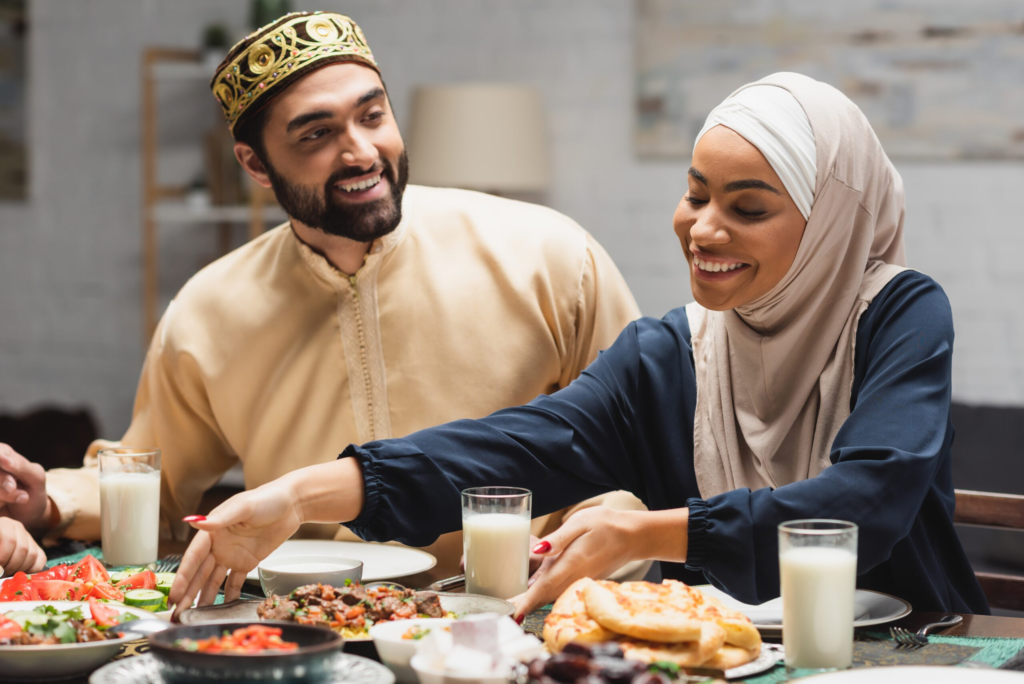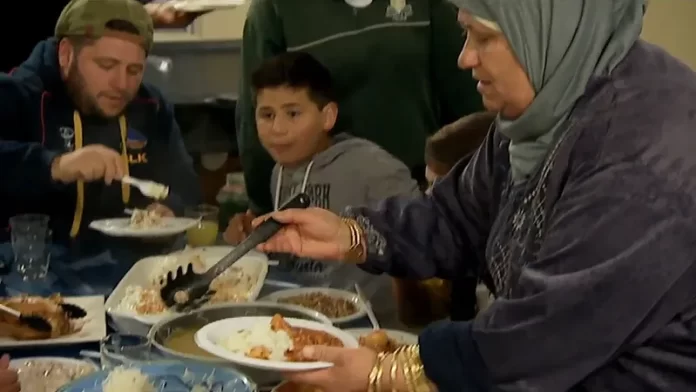As the Ramadan season approaches, the air is filled with excitement, anticipation, and the spirit of giving. Muslims around the world eagerly prepare for this sacred month of fasting, prayer, and reflection. Central to the Ramadan experience is the tradition of gifting, a practice deeply rooted in the values of generosity, compassion, and community. But what traditions exactly surround gifting during this auspicious time? Let’s delve into the rich tapestry of customs and rituals that make Ramadan gifting a cherished tradition for millions.
The Essence of Ramadan Gifting

Ramadan, often referred to as the month of blessings, is a time when Muslims focus on spiritual growth, self-discipline, and acts of kindness. At the heart of this holy month lies the principle of generosity, exemplified through various acts of charity and giving. Ramadan gifting, therefore, is not merely a customary practice but a profound expression of faith and goodwill towards others.
Acts of Charity: Zakat and Sadaqah

- Zakat: One of the five pillars of Islam, Zakat is a mandatory form of charity that Muslims are required to give during Ramadan. It involves donating a portion of one’s wealth, typically 2.5%, to those in need. This act of giving is believed to purify wealth and bring blessings during the holy month.
- Sadaqah: Beyond the obligatory Zakat, Muslims also engage in voluntary acts of charity known as Sadaqah. This can take various forms, including feeding the hungry, supporting orphanages, or providing assistance to the less fortunate. During Ramadan, the spirit of Sadaqah is particularly vibrant, with individuals and communities coming together to alleviate poverty and suffering.
Exchanging Gifts: A Gesture of Love and Appreciation

While acts of charity form the cornerstone of Ramadan giving, exchanging gifts among family, friends, and neighbors is also a cherished tradition. These gifts symbolize love, appreciation, and solidarity, strengthening bonds of kinship and fostering a sense of unity within the community.
Traditional Ramadan Gifts
- Dates and Sweets: Dates hold special significance during Ramadan as they are traditionally consumed to break the fast. Gifting high-quality dates or assorted sweets is a common practice, symbolizing the sweetness of the occasion and sharing blessings with loved ones.
- Islamic Literature: Books on Islamic teachings, Quranic verses, and Hadith collections are popular gifts during Ramadan. These literary works not only serve as sources of spiritual guidance but also inspire reflection and introspection during the holy month.
- Artisanal Crafts: Handcrafted items such as prayer rugs, calligraphy pieces, and decorative lanterns are prized gifts exchanged during Ramadan. These artisanal creations not only showcase cultural heritage but also add a touch of elegance to the recipient’s home.
The Joy of Giving: Etiquette and Customs

While giving gifts during Ramadan is a joyous affair, observing proper etiquette and customs enhances the significance of the gesture. From selecting the perfect gift to presenting it with sincerity, certain guidelines ensure that the act of giving is imbued with thoughtfulness and respect.
Gift-Giving Etiquette
- Thoughtful Selection: When choosing a Ramadan gift, consider the recipient’s preferences, interests, and religious beliefs. Thoughtful selection demonstrates sincerity and reflects the spirit of generosity associated with the holy month.
- Humility and Modesty: In keeping with the values of humility and modesty, it is customary to downplay the significance of the gift and avoid ostentatious displays of wealth. The focus should be on the sentiment behind the gesture rather than the monetary value of the gift.
- Personalized Touch: Adding a personal touch to the gift, such as a handwritten note or a handmade item, enhances its significance and fosters a deeper connection between the giver and the recipient. Customizing the gift demonstrates attentiveness and affection towards the recipient.
Frequently Asked Questions (FAQs)
1. Can non-Muslims participate in Ramadan gifting traditions? Absolutely! Ramadan is a time of inclusivity and goodwill, and non-Muslims are welcome to participate in the spirit of giving. Gifting acts as a bridge that connects people from diverse backgrounds and fosters mutual understanding and respect.
2. Is there a specific time to exchange gifts during Ramadan? While there is no strict rule regarding the timing of gift exchanges, many people choose to present gifts at Iftar gatherings or during Eid celebrations, which mark the culmination of Ramadan. However, gifts can be exchanged at any time during the holy month as a gesture of goodwill and solidarity.
3. What if I am unsure about the appropriate gift to give? If you’re uncertain about the recipient’s preferences or cultural sensitivities, consider opting for universally appreciated gifts such as flowers, gourmet treats, or thoughtful gestures like offering to perform acts of service or charity on their behalf.
Conclusion: Celebrating the Spirit of Generosity
In essence, the traditions surrounding gifting during the Ramadan season are a testament to the spirit of generosity, compassion, and unity that define this sacred time. Whether through acts of charity, exchanging thoughtful gifts, or observing gift-giving etiquette, Muslims around the world embrace the opportunity to spread joy and blessings to those around them. As we navigate through the rhythms of Ramadan, let us remember that the true essence of gifting lies not in the material value of the gift but in the sincerity and goodwill with which it is given. So, as you prepare to celebrate Ramadan, remember to embrace the joy of giving and let the spirit of generosity illuminate your path!
So, what traditions surround gifting during the Ramadan season? They are woven from threads of love, compassion, and community, creating a tapestry of generosity that enriches the hearts and souls of millions around the world.


